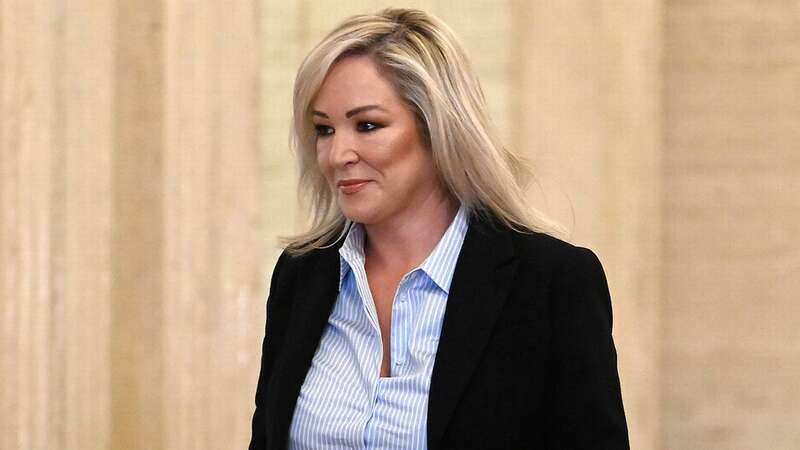
Michelle O’Neill is set to become Northern Ireland’s first Irish nationalist First Minister after the DUP agreed to return to power-sharing at Stormont.
The Democratic Unionist Party has blocked the formation of a government for almost two years. But after late talks on Monday night, DUP leader Sir Jeffrey Donaldson said it would end its boycott following an agreement with the UK Government aimed at addressing concerns over post-Brexit trade barriers.
As the largest party after the most recent assembly elections in 2022, Sinn Fein's vice-president Ms O’Neill is in line to become First Minister. She said today: "I do think it is a day of optimism and some hope for the wider public. We have a lot of hard work ahead of us, a slog ahead of us, but collectively we can do better for the people we serve.”
Ms O’Neill comes from a staunchly Irish republican family in County Tyrone. Her father, Brendan Doris, was an IRA prisoner. Tony Doris, her cousin, was one of three IRA men shot dead by the SAS in 1991 and her cousin Gareth Doris, an IRA member shot and wounded by the army in 1997.
The 47-year-old has previously spoken about how she was determined not to be written off after she became a mother at the age of 16. "Being a young mum, well it's my life experience, it made me what I am, it makes you stronger, I think,” she said. "I know what it's like to be in difficult situations. I know what it's like to struggle, I know what it's like to go to school and have a baby at home.”
 Michelle Mone's husband gifted Tories 'over £171k' as Covid PPE row rumbles on
Michelle Mone's husband gifted Tories 'over £171k' as Covid PPE row rumbles on
"At that time, you're talking 1993, society still, compared with today, was a very different place. You were neatly put in a box: single mother, unmarried mother, nearly written off. But I was determined that I wasn't going to be written off, that I was going to work hard and make a good life for her."
Ms O’Neill joined Sinn Fein after the Good Friday Agreement in 1998 at the age of 21 and became a councillor. In 2007, she was elected to the Northern Ireland Assembly and served as agriculture minister and then health minister. Following the death of Martin McGuinness in 2017, she became Deputy First Minister when power-sharing was restored in 2020.
She faced calls to step down in 2020 after she was accused of breaking coronavirus rules as she attended the funeral of veteran IRA commander Bobby Storey.
Ms O’Neill accepted invitations to attend both the funeral of Queen Elizabeth and the Coronation of King Charles. In a statement ahead of the Coronation, she said: “I am committed to being a First Minister for all, representing the whole community, and advancing peace and reconciliation through respectful and mature engagement.”
The DUP’s Stormont boycott began when disagreements arose over how Northern Ireland would manage trade after Brexit, given its position in the UK and relationship with its EU neighbour, the Republic of Ireland. Sir Jeffrey said the deal to restore power-sharing will remove all post-Brexit checks on goods moving into Northern Ireland from the rest of the UK. It will also see the Treasury release a £3.3billion package to support under-pressure public services in Northern Ireland, including money to settle the demands of striking workers.
The DUP leader said if the Government moved with speed Stormont could be back within days. Northern Ireland Secretary Chris Heaton Harris welcomed the progress and made clear the Government would deliver on its end of the deal.
Read more similar news:
Comments:
comments powered by Disqus






























